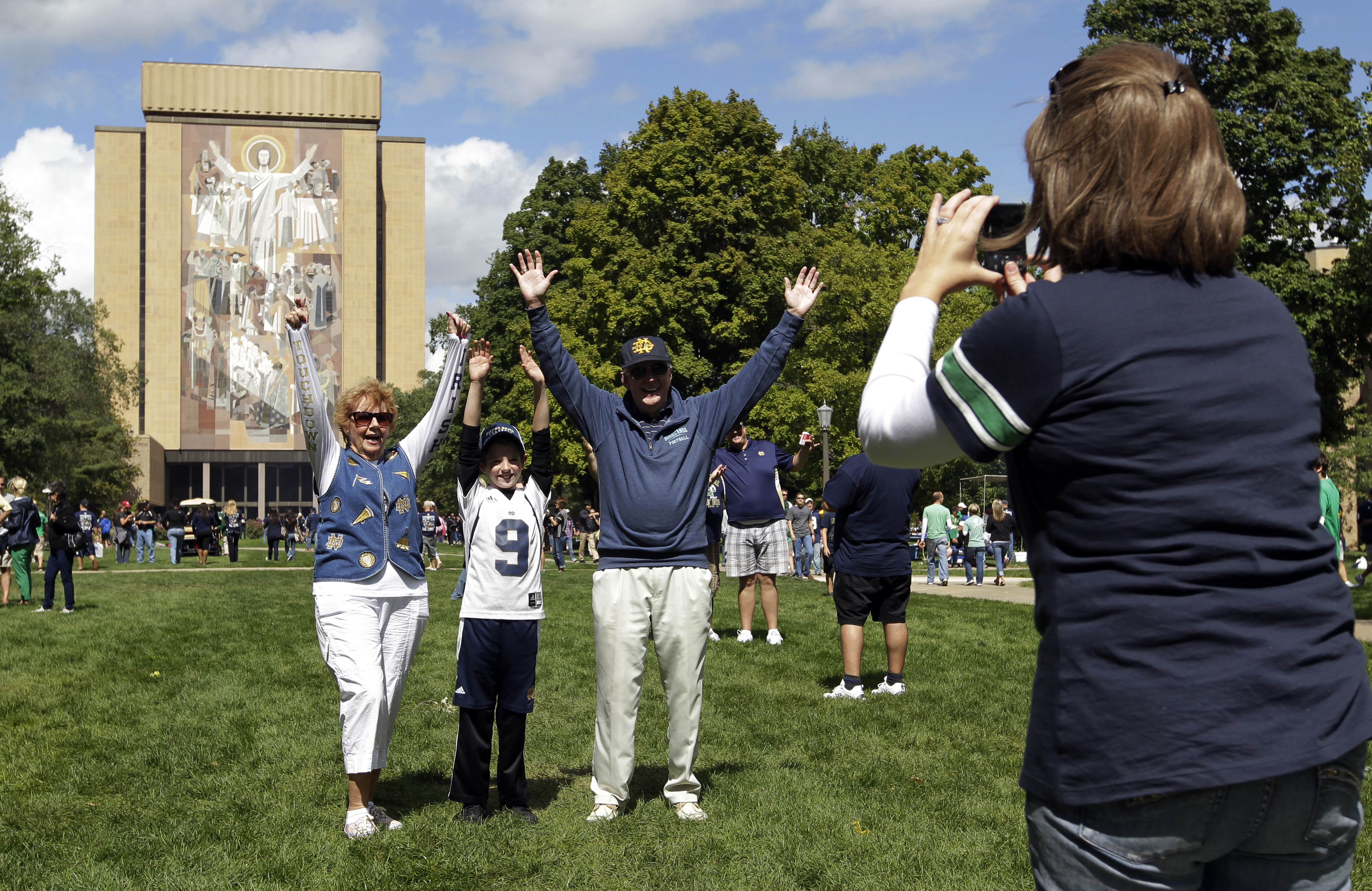
We’re not even at the end of it yet and it’s already been an odd week for trying to establish parallels with football.
Earlier this week, faithful and well-respected NewsCut readers will recall, a New York Times columnist tried to convince us that high school football teams in Minnesota (and elsewhere) are having a hard time getting kids to play because there aren’t enough Republicans here.
Today, Time tackles the issue in a different way, asking “what’s the deal with football and God?”
There isn’t much god-like about football, writes Mark Edmundson, author of “Why Football Matters: My Education in the Game.”
“The peace and forgiveness taught in church are not values reflected on the field — but football shows the division of our ethical consciousness,” he says.
The answer comes back — again — to Republicans. Republicans are more into God, Republicans are more into football, therefore God is more football-like.
We’ve come to take this fusion of football and religion pretty much for granted. So too do we take the fusion of military values and football values as a matter of course. We’re not surprised when representatives from all four service branches bring the colors out before the game or when Navy jets stream over at half time.
Nor are we much surprised when coaches talk about God and the Savior and when we see footage of players praying before games.
It’s no surprise that Notre Dame, a school dedicated to religion, is also dedicated to football. No one seems perplexed that a mural depicting the savior with his arms raised is visible behind the stadium: Touchdown Jesus, he’s called.
Football is a game beloved by conservatives. Conservatives love football; conservatives love faith. What more is there to say?
Well, maybe there’s something. You don’t have to read the Gospels with exquisite care to see that the values espoused there are not quite football values. Jesus is many things to many people. But it would take a great deal of ingenuity to deny that he is a prophet of forgiveness—forgiveness and non-violence.
When someone strikes you, what are you to do? On this Jesus is unequivocal. You must turn the other cheek. When someone sins against you, do you take revenge? No, not at all. Jesus tells us to forgive trespassers time after time. On the cross he looks out at his tormentors and speaks a simple and memorable sentence: Father forgive them, they know not what they do.
Jesus can get angry at times. When he sees the money changers operating in the temple, he picks up a whip and brandishes it at them. He picks up the whip. But he doesn’t hit anyone with it. And when he sees a fig tree that will not bear fruit, he blasts it. Why does he blast it? No one really knows.
He blasts it because he does. But the temple whip flourishing and the fig tree blast are about the most violent things we see Jesus do. Mostly he is the advocate or peace, love and forgiveness.
It’s odd then, isn’t it, that football and faith, and the Christian faith in particular, should be so resolutely aligned in American culture?
Well, there you go, then. Jesus picks up a whip. Adrian Peterson picks up a whip.
But he makes a legitimate — if somewhat circular — point worth considering. Church is where people go on Sunday and then behave in a contradictory way Monday through Saturday. Football is a metaphor for our ethical and moral lives. That is to say: It makes no real sense.
What football shows us Americans is how dramatically our ethical consciousness is divided. We can go to church and listen to the gospel of peace and forgiveness and then go home and watch the carnage on the field for a simple reason: that’s a tension we live with all the time.
The religion that most of us follow allows us to be forgiving (when we wish to be) and retributive (when we wish to be). It really is up to us which way to go at any given moment. For we have sacred sanction for both paths.
The Buddhists for instance do not worship any god who deploys violence: they follow the example of Gautama, the Buddha, who claimed to be nothing more than a mortal man. (Or they try.) When a Buddhist behaves violently (and plenty have and will) he has no religious sanction for it. For the Christian—or rather the Judeo-Christian—this is not the case.
Baseball doesn’t have these contradictions. Baseball is agnostic.
